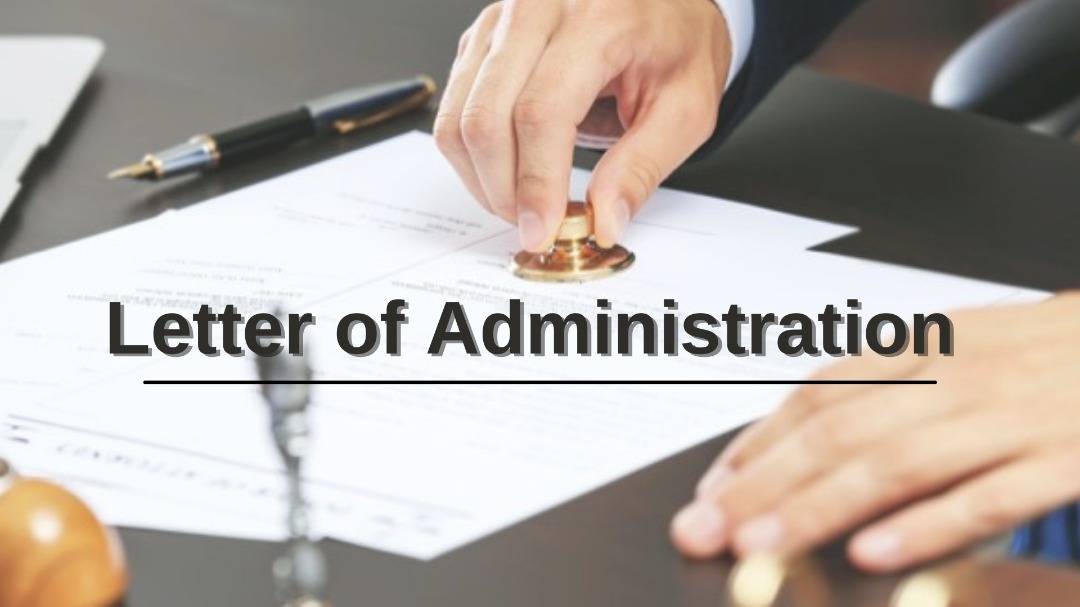Letters of Administration is a legal document that grants an administrator the authority to manage the estate of a deceased person when there is no Will, or the named executor is unable or unwilling to serve. While probate in WA and letters of administration can be important tools for managing an estate, they can also give rise to several common issues and challenges that must be carefully navigated to ensure a smooth and fair administration process. In this blog post, we’ll explore some of the most common issues that arise with letters of administration and provide guidance on how to address them.
What are Letters of Administration?
Letters of Administration are legal documents that grant an individual, known as an administrator, the authority to manage the estate of a deceased person when there is no Will or the executor is unwilling to take part. In the absence of a Will, the deceased person is said to have died “intestate,” The administrator is responsible for ensuring that the deceased person’s assets are distributed following the relevant state law.
The process of obtaining letters of administration typically begins with a petition to the appropriate court. The petition must include information about the deceased person, such as their name, date of death, last known residence, and information about the proposed administrator. This information includes basic details like their name, address, and relationship to the deceased person.
Once the petition is filed, the court will review the information and may schedule a hearing to consider the administrator’s appointment. In some cases, the court may require the proposed administrator to obtain a bond, a type of insurance policy that provides financial protection if the administrator mismanages the estate.

Issues Related to Letters of Administration
1. Disputes over the appointment of the administrator
One of the most common issues with letters of administration is disputes over the administrator’s appointment. In some cases, multiple individuals may seek to be appointed as the estate’s administrator, leading to disagreements and disputes over the most appropriate person to serve in that role.
To avoid disputes over the administrator appointment, you must carefully review the requirements for appointment under the relevant state law and communicate clearly with all interested parties. It is also helpful to seek the assistance of an experienced estate planning attorney who can guide the appointment process and help mediate any disputes that arise.
2. Identifying and valuing the assets of the estate
Another common issue with letters of administration is identifying and valuing the estate’s assets. In some cases, the deceased person may not have left a clear inventory of their assets, or the assets may be difficult to value, leading to delays and complications in the administration process.
To address this issue, thoroughly reviewing the deceased person’s financial and legal documents, including bank statements, tax returns, and property deeds, is important. It is also helpful to engage the services of a professional appraiser or accountant to assist with the valuation process.
3. Managing the debts of the estate
A third common issue with letters of administration is managing the estate’s debts. The estate administrator is responsible for paying off any outstanding debts, including taxes, mortgages, and other liabilities, before distributing the remaining assets to the beneficiaries.
To ensure that debts are managed effectively, it’s important to identify and prioritise all outstanding debts based on the relevant state law. It is also necessary to engage the services of an accountant or other financial professional to assist with the debt management process.
4. Distributing the assets of the estate
A fourth common issue with letters of administration is distributing the estate’s assets to the beneficiaries. The estate administrator is responsible for ensuring that the assets are distributed according to the relevant state law and any instructions the deceased person leaves.
You can ensure a fair and efficient distribution process by connecting clearly with all interested people and documenting all transactions and distributions. It is also helpful to seek the assistance of an experienced estate planning attorney who can guide the distribution process and help mediate any disputes that arise.
5. Managing disputes and challenges to the administration process
A fifth common issue with letters of administration is managing disputes and challenges to the administration process. Similar to probate in NSW, disputes and challenges can arise for various reasons, including disagreements over the appointment of the administrator, or the administration process, and disputes over the distribution of assets.
You can manage disputes and challenges by communicating with all interested parties and seeking the assistance of an experienced estate planning attorney who can guide the legal options available. In some probate cases, alternative dispute resolution methods, such as mediation or arbitration, may be appropriate to help resolve disputes and challenges.
Final Thoughts
Obtaining Letters of Administration can be complicated, and administering an estate can present various challenges. Administrators must be prepared to navigate various legal and financial complexities, from conflicts between beneficiaries to difficult-to-value assets and the potential for fraud or mismanagement. Fortunately, with careful planning and guidance from an experienced estate planning attorney, many of these challenges can be mitigated or avoided altogether. By understanding the common issues that can arise with Letters of Administration and taking proactive steps to address them, administrators can help ensure that the estate administration process is as smooth and fair as possible for all involved.
If you have more questions, our experts at Probate Consultants remain just a call away from clearing all your doubts. So, find us soon and let us help you make your probate case smooth and successful.





